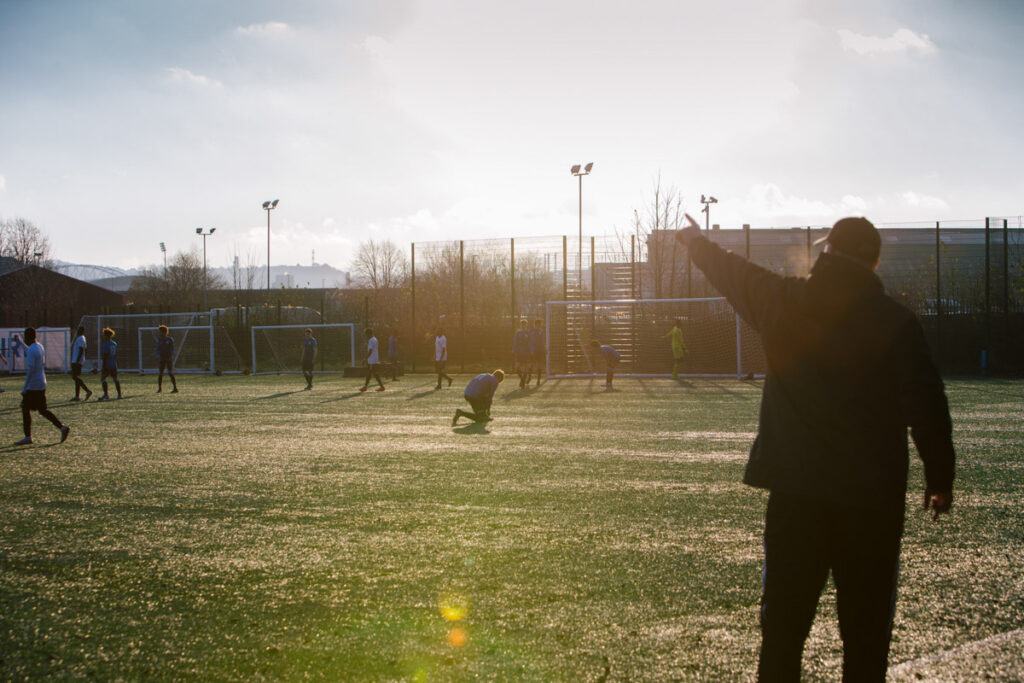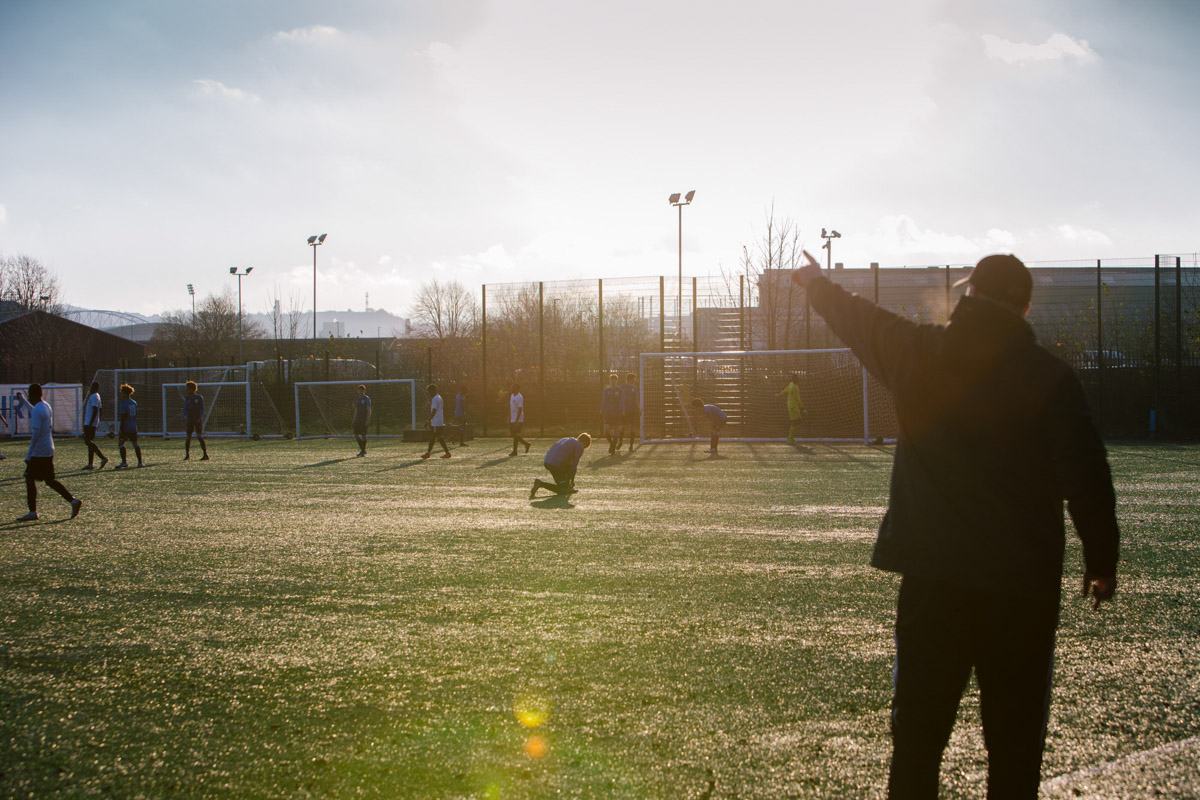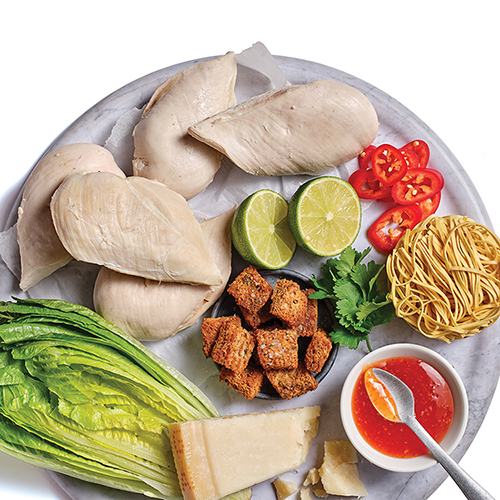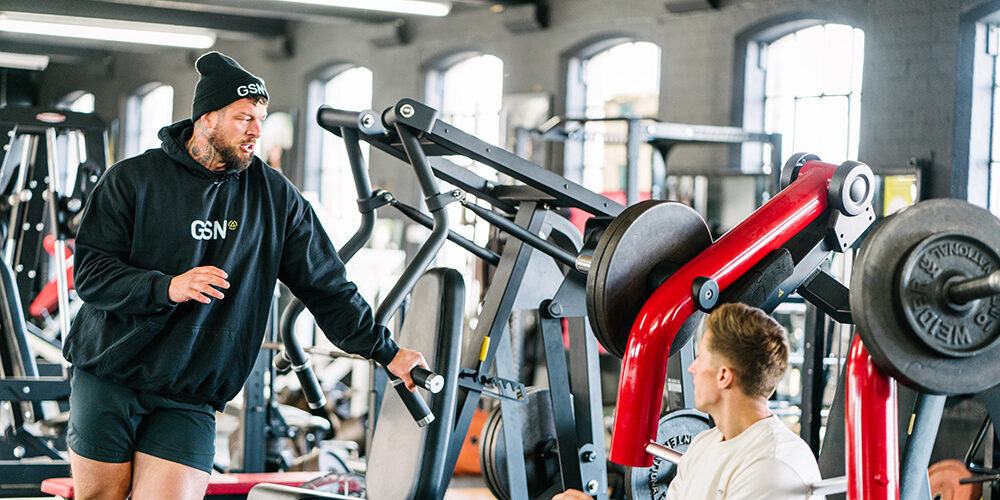Enhancing Performance and Recovery for Footballers
Read Time: 4mins.
It's common knowledge that proper nutrition significantly impacts performance and general health.
We spoke to Elite Level Nutritionist Dan Richardson...

Advice From a Professional
We asked Performance Nutritionist Dan Richardson for his recuperation top tips:
"As a nutritionist working with elite athletes, I can stress the power of the 3 R's of recovery: Repair, Refuel, and Rehydrate. These principles are the cornerstone of post-football recuperation.
Repair involves ensuring adequate protein intake to facilitate muscle recovery and growth. Picture it as the body's renovation crew, repairing the micro-tears in muscle fibres caused by training and matches. I always emphasise the importance of consuming a high-quality protein source shortly after exercise to kickstart this crucial process.
Refuel is all about replenishing glycogen stores with carbohydrates. Think of glycogen as your body's fuel tank — it gets depleted during exercise, leaving you running on fumes. Incorporating carbohydrates post-workout helps refill this tank, restoring energy levels and preparing you for your next training session or competition.
Rehydrate. Hydration is key to maintaining optimal performance and recovery. Athletes lose significant fluids and electrolytes through sweat, so it's crucial to replace them. Water, along with electrolyte-rich drinks, ensures your body stays in balance and functions efficiently.
My 3 Top Nutrition Tips for Performance:
1. Balanced Diet: Fuel your body with a mix of protein, carbohydrates, and healthy fats to support overall health and meet energy demands. Aim for nutrient-dense foods like lean meats, whole grains, fruits, and vegetables to provide essential vitamins and minerals.
2. Pre-Training: Eat a pre-workout meal 2-3 hours before exercise to allow for digestion and nutrient absorption. If you're short on time, a small snack containing carbohydrates and a bit of protein can suffice 30-60 minutes before your session.
3. Hydration: Stay hydrated throughout the day by drinking water consistently, and include electrolyte drinks during and after intense training and matches. Proper hydration helps maintain muscle function, reduces the risk of cramps, and enhances overall performance. Keep an eye on your urine colour—it should be pale yellow, indicating adequate hydration."
You can find Dan on LinkedIn, here.
Calculate Your Fuel
With multi-billion-pound contracts and over 274,000 hours of Premier League coverage being broadcast, the pressure is enormous, and professionals must optimise every aspect of their lifestyle: their strategies and dietary theory are applicable all the way down the football pyramid.
This need for meticulous care is evident at the top of the game, where teams of expert nutritionists and chefs prepare diet plans and meals tailored to individual players. However, as you move down to lower leagues, where budgets are tighter, educating and providing players with optimal nutrition becomes more challenging.
Whether you’re a chairman, coach, or club nutritionist, you have varying levels of influence on your club's nutrition, and your efforts can drive impactful changes.
More recently, football has been catching up with athletics, American football, and bodybuilding by increasing focus on how optimising nutrition can enhance performance. Despite these efforts and the wealth of available knowledge, pies, pizzas, and takeaways are still common post-match meals for many professional and semi-professional teams. This creates an imbalance in macros that can slow recovery and potentially increase the risk of injury.
Research on nutrient intake in footballers is fairly scarce; however, one thing is generally agreed upon – footballers often play and recover with carbohydrate deficiencies. Focusing nutrition around three key areas can quickly help:
- Improve Recovery Time
- Improve Performance
- Decrease Risk of Injury

Preseason Training and Marginal Gains
Preseason is a critical period for footballers to build fitness, strength, and endurance, setting the foundation for the demanding season ahead.
During this time, nutrition plays a pivotal role in ensuring players maximise their training efforts. The concept of marginal gains, popularised by Dave Brailsford, is particularly relevant:
"The whole principle came from the idea that if you broke down everything you could think of that goes into riding a bike and then improved it by 1%, you will get a significant increase when you put them all together."
Applying this principle to football, small improvements in diet, recovery, and training can cumulatively lead to significant performance enhancements.

1) Immediately After a Game and/or Hard Training (0-4 Hours)
This period is vital for refuelling and recovery. Snacks, shakes, and carbohydrate drinks are highly recommended to quickly replenish glycogen stores, followed by a well-balanced meal providing a mix of nutrients. For optimal results, consider the following guidelines:
- Carbohydrates: 0.8-1g per kg body weight per hour for the first 4-hour period post-workout
- Protein: 60g total (1.6g per kg body weight minimum, total daily)
- Fat: Minimum 20% of total daily calories
What does this look like in real food within a 4-hour post-exercise/game window?
- Post-Exercise Shake (30g Whey Protein, 1 Banana, Teaspoon Peanut Butter, 80g Oats)
- 2 Bananas
- 1 x Tender Chicken Tikka Masala Pot O Gold
- OR 100g of Fajita Chicken Bites on a tortilla wrap with salad.
- 60g Dried Fruit
- 1 x Handful of Almonds (approx. 30g)
- 1 Sports Electrolyte Drink (e.g., Lucozade Sport)
Although this may seem like a lot of food for a player around 74 kilograms, it is much more manageable when spread over a 4-hour period starting immediately after a game.

2) Recovery Between Training and/or Matches
From the moment you finish a match or training session, refuelling for optimal recovery is crucial to perform again at the same or higher intensity. The cycle is simple:
Train → Eat Correctly for Recovery → Improve Training Quality → Eat Correctly for Recovery → Improve Training Quality, and so on.
During this time, the following guidelines are recommended:
- Carbohydrates: 5-10g per kg of body weight per day
- Protein: 1.6-2.2g per kg of body weight per day
- Fat: Minimum 20% of total daily calories
What does this look like as an average meal (based on 7 meals a day)?
- 1 x Piri Piri Pot O Gold
- 1 x Banana
- 1 x Small Handful of Almonds (approx. 20g)
- Jamie Christian’s Chicken Bagel is a great fit… (Click here for the recipe)
In both periods, our Pot O Gold meals are included not just for clever marketing but because they offer exceptional nutritional value in terms of financial and time cost.
Few footballers would happily cook and measure ingredients for a post-match meal. However, our Pots provide a reliable, pre-cooked, microwaveable option that can be conveniently taken onto the team bus or eaten during the journey back from an away game.
Each pot is measured to provide a reliable and convenient balance of macro-nutrients: a solid base which can then be topped up to hit specific nutrient levels at certain times (e.g., Post-Match also have banana and dried fruit to increase carbohydrates for replenishment).
We’re excited to work with several football clubs over the 2024/25 season, including Manchester United, Leeds United, and Lewes F.C. Stay tuned for upcoming posts on how proper nutrition off the pitch can influence and improve performance on the pitch.



